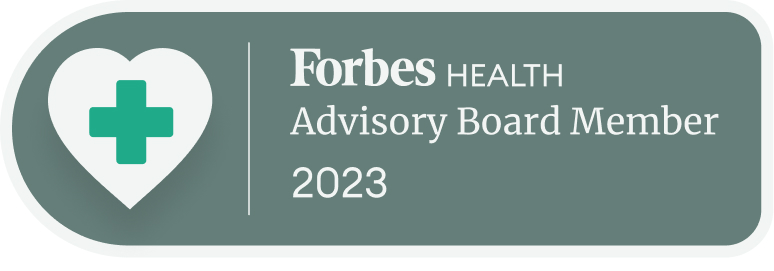Post-Traumatic Stress Disorder (PTSD) is a debilitating mental health condition that can arise after experiencing or witnessing a traumatic event. It affects millions of people worldwide and is characterized by symptoms such as flashbacks, nightmares, intrusive thoughts, hyperarousal, and emotional numbing. While traditional treatments like psychotherapy and medications have shown some efficacy, there is a growing interest in exploring alternative approaches. One such emerging treatment is the use of ketamine, a dissociative anesthetic known for its hallucinogenic effects. This essay aims to delve into the potential of ketamine as a novel and promising treatment for PTSD.
Principium is a multidisciplinary mental health clinic offering a range of therapies for mood and anxiety disorders and PTSD. Treatments include psychotherapy, medications, TMS, and Ketamine. Principium is a leading center for innovative mental health care in the tristate region, with offices in Manhattan, New York (including Grand Central and Downtown locations) and Greenwich, CT. We understand that symptoms of PTSD can be debilitating and are committed to offering the best of the art and science of medicine to improve patients’ lives.
PTSD can develop after experiencing a range of traumatic events, including combat, sexual assault, natural disasters, or accidents. The condition alters the brain’s functioning, particularly in regions associated with memory, emotion regulation, and fear response. Traditional treatment options include cognitive-behavioral therapy (CBT), exposure therapy, and medications such as selective serotonin reuptake inhibitors (SSRIs). While these approaches have been helpful for many individuals, a substantial number of patients continue to experience significant symptoms even after receiving standard treatments.
Ketamine is a dissociative anesthetic that has been used for decades in surgical procedures and veterinary medicine. However, in recent years, researchers and clinicians have been investigating its potential as a treatment for various mental health conditions, including depression, anxiety, and PTSD. Ketamine’s ability to rapidly alleviate symptoms, even in treatment-resistant cases, has sparked immense interest in its therapeutic potential.

Ketamine functions as an N-methyl-D-aspartate (NMDA) receptor antagonist, modulating the glutamate system in the brain. It also acts on other neurotransmitter systems, such as gamma-aminobutyric acid (GABA) and dopamine. The precise mechanisms through which ketamine exerts its therapeutic effects on PTSD are not yet fully understood, but several theories have been proposed. One hypothesis suggests that ketamine helps to “reset” aberrant neural circuits associated with traumatic memories, reducing their emotional intensity and allowing for cognitive processing and integration. Another theory suggests that ketamine enhances neuroplasticity, promoting the growth of new synapses and neuronal connections that aid in emotional regulation and resilience.
Several small-scale studies and clinical trials have examined the efficacy of ketamine in treating PTSD, with promising results. A notable study conducted by FEDER et al. (2014) demonstrated that a single intravenous (IV) infusion of ketamine significantly reduced PTSD symptoms in veterans, with effects lasting up to two weeks. Another study by Wilkinson et al. (2018) found that repeated ketamine infusions over three weeks led to substantial improvements in PTSD symptoms and overall quality of life. These findings, along with other preliminary studies, suggest that ketamine may provide rapid and robust relief for individuals suffering from treatment-resistant PTSD.
One of the key advantages of ketamine is its rapid onset of action. Unlike traditional antidepressants, which may take weeks or even months to show noticeable effects, ketamine often produces significant improvements within hours or days of administration. This is particularly beneficial for individuals experiencing severe and debilitating symptoms. Moreover, ketamine is generally well-tolerated when administered under medical supervision, although some short-term side effects such as dissociation, dizziness, and nausea may occur.
However, there are challenges associated with ketamine treatment as well. Firstly, the optimal dosage, frequency, and duration of ketamine administration for PTSD are still being determined, and individual responses can vary. Furthermore, the long-term effects of repeated ketamine use, potential for abuse, and optimal maintenance strategies are areas that require further research.

The potential of ketamine as an innovative treatment for PTSD offers hope to those who have not found relief through traditional approaches. The rapid and robust effects observed in preliminary studies underscore its therapeutic promise. However, it is crucial to continue research in order to better understand the long-term efficacy, safety, and mechanisms of action of ketamine. Collaborative efforts between researchers, clinicians, and regulatory authorities are essential to ensure responsible and evidence-based integration of ketamine into mainstream treatment options for PTSD. With further investigation, ketamine could potentially transform the lives of countless individuals by offering a path to healing and recovery from the burdens of post-traumatic stress disorder.
Principium Psychiatry is committed to innovation in mental health care and in the treatment of PTSD. We bring cutting edge treatments to clinical care, including IV ketamine and Spravato. While the use of ketamine for treatment of PTSD is off-label, research indicates it holds promise for the treatment of PTSD. Our clinical experience has shown that patients with PTSD can benefit greatly from Ketamine therapy. Principium is located near Grand Central Station in Manhattan (in the Bowery Savings Bank Building), in the Wall Street district downtown (in the Standard Oil Building), and in Greenwich, CT.
Inquiries may be directed to our office at info@principiumpsychiatry.com